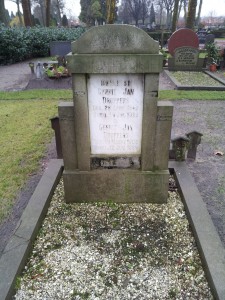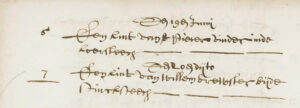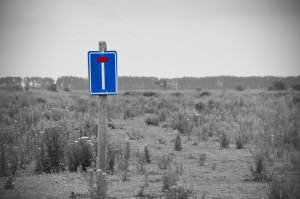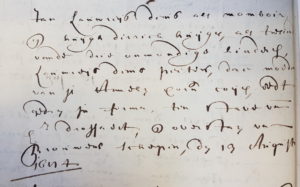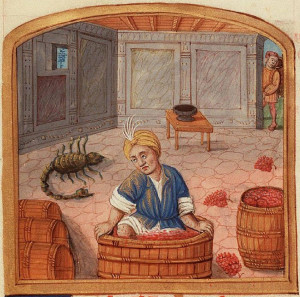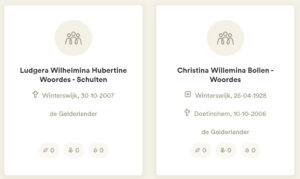Notarial records are some of the richest sources of information about our ancestors' lives. They may contain wills, estate inventories, contracts, sales, and a range of other voluntary legal transactions. They are an important source for researching emigrants from the Netherlands. Many people went by a notary before leaving, for example to enter into a work contract or give a power of attorney to handle their affairs. Emigrants can still appear in notarial records after departure, if they owned … [Read more...]
Dutch term – Grafrechten
Grafrechten are grave duties, the fees that have to be paid for a grave. Some churches or towns kept registers of these payments. They can act as a substitute for missing burial records. In most cemeteries, graves can only be leased, not bought. After the lease expires, the next of kin have to pay grave duties again or the grave will be cleared. … [Read more...]
Quick tip – Burials under name of husband or father
Many burial registers and related registers like burial fees registers recorded entries under the name of the head of household. Entries might be for the wife of Jan Claesz, or the child of Pieter Willems. If you cannot find a married woman in a burial register, check under her husband's name. If you cannot find an unmarried person, such as a minor child, in a burial register, check under their father's name. … [Read more...]
Dutch term – Machinist
A machinist is a person who operates heavy machines. The occupation started to appear in records in the nineteenth century. Originally, the term was used for all kinds of machines, including in factories. Over time, it became used for machines related to transportation, such as the train driver or the engineer on board of a ship. Hat tip: @Lena via Discord. … [Read more...]
The Genealogical Unproof Standard for Brick Walls
I think the term "brick wall" is used too easily for any ancestor where you don't know the parents. I think you shouldn't call someone a brick wall ancestor unless you gave it your best shot. Many genealogists are familiar with the Genealogical Proof Standard (GPS), as formulated by the Board for Certification of Genealogists. The GPS as has five components: Reasonably exhaustive research Complete and accurate source citations Careful analysis and correlation of evidence … [Read more...]
Dutch term – Vrijwillige rechtspraak
Vrijwillige rechtspraak means voluntary justice. You may come across the term in finding aids of court records. The series of vrijwillige rechtspraak are cases where the court is involved, but nobody is charging or sueing anyone. Examples of records you may find in the series of voluntary records are prenuptial agreements, guardianship appointments, last wills, or estate divisions. In regions that had notaries, you may encounter those types of records in the archives of the notaries instead. … [Read more...]
Dutch Genealogy News for September 2023
Here are the new sources, websites, projects, and other news announced last month. Sources The resolutions of the States-General from the 1700s have been transcribed and can be searched via a prototype of a search engine. Notarial records of Schiedam 1614-1771 have been automatically transcribed and can be searched at Transkribus. Court, notarial, and town records of Chaam and Terheijden have been automatically transcribed and can be searched at VerledenTekst. Various birth, … [Read more...]
Dutch term – 8ber, 8bris
In old records, you may find the word 8ber or 8bris for the month. This means October or Octobris [Latin]. The names of the months were established when the start of the year was in March and October was the eighth month. Do not confuse 8ber for August, the eighth month of our current calendar. … [Read more...]
Quick tip – Mensenlinq
Mensenlinq is a website where many current newspapers publish their family announcements. It is a good place to find the recently deceased. It can be difficult to find recent deaths since death records are not public for 50 years and recent newspapers are not published online due to copyrights. Mensenlinq allows you to search for the announcements that families placed in newspapers. See the source Family Announcements for more information about this source. By default, Mensenlinq only … [Read more...]
Dutch term – Patria
Patria (literally: fatherland) is a Latin term sometimes used in Dutch colonial records to refer to the Netherlands. You could come across the term in government or notarial records, in reference to people about to return home. The word patriot is derived from patria as well. … [Read more...]

